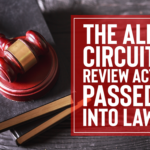As lawyers, we usually become involved with problems after they occur. Our client-whistleblowers are heroes who have gone through the fire and stood up to the wrongdoing in their workplaces, usually at great personal cost and under tremendous stress. But have you ever stopped to wonder why good people act unethically in the first place?
The McCombs School of Business at The University of Texas at Austin is working to answer this question through a series of instructional videos. The Ethics Unwrapped series explores ‘behavioral ethics,’ a relatively new area of study that explores the organizational pressures, psychological biases, and situational factors that cause otherwise good people to act unethically.
For instance, many whistleblowers are pressured by their superiors, directly or indirectly, to help commit fraud. While our clients’ moral fiber leads them to stand up to such pressures, many people look the other way, allowing the wrongdoing to continue. This video on Obedience to Authority discusses the complex psychological factors that permit fraud to be perpetrated. And you can see how the ‘slippery slope’— the concept of Incrementalism — exists in every workplace.
The video series also includes a riveting series of videos and 25-minute documentary focusing on former lobbyist and convicted felon Jack Abramoff. Abramoff discuss the internal biases and external pressures he faced in arriving at his unethical decision-making. Abramoff saw himself as one of the “good guys” who battled for his clients. Now, in retrospect, he sees where he went wrong and provides lessons from which others can benefit.
Personal awareness and understanding of how behavioral ethics affects our decision-making may result in better, more ethical decision-making and fewer fraudulent acts. For those times that fraud occurs despite best intentions, our laws, including the False Claims Act, provide a remedy to impose an ethical outcome.




